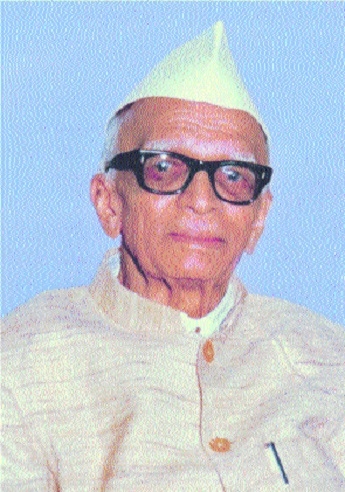Oriental Conference at Crossroads
| Date :12-Jan-2020 |

Prof Dr R N Dandekar
By N R Pattarkine :
When ICO completed its century in its 29th session at Paris in July 1973, The French newspaper Le Monde wrote on 23rd July 1973 “Le Orientalism est mort Il sera desormais remplace par les etudes astastiques on par les sciences humaines asiatiques qui englobent des civilisation allant de la Mediterranee Orientale at Pacifique” (Orientalism is dead. It will now be replaced by Asian studies or by Asian Humanities which encompass civilisations ranging from the eastern Mediterrean to the Pacific). On this comment by the French Daily, the French Gnostic, J Ries wrote in his chronicle that these lines reflected a series of intervention and maneuvers by Asian Delegates resulting in some decisions important for the future of civilization.
(English translation from French Original c.f.Revue Theologique, De Louvain 5 Anee Fasc. 2, 1974. P.253). In fact the official communique emphasised that Congress pertaining to special fields be held separately hitherto being organised under one cover ‘Oriental’. The world known Sanskritist Dr Venkat Raghvan formed the ‘International Association for Sanskrit Studies’ (IAAS) in this Paris meet and all the subsequent World Sanskrit Conferences (Torino-1975-Vancouver 2018) have been organised by IAAS. Another significant thought that influenced the administrative conduct of the Congress was that of ‘gigantism’ and ‘tourism’. As the Hungarian Scholar K Czegledy puts in his ‘Chronica’ that Prof. Rene Labat (the President of 29th ICO) himself called for basic changes in the activity of the Congress.
He spoke of ‘gigantism’ reflected in the size of the Congress. Another negative feature of the session has long been the undue intruism of ‘tourism’ (Acta Orientalia Vol. 28 No. 2 1974). The old ‘ICO’ with its classical character had since been disbanded and a new incarnation under the title ‘International Congress of Human Sciences in Asia and North Africa came into being of which the first session was held at Mexico in 1976. In this background the centenary celebration of AIOC at Nagpur may demand an intellectual discourse on its future form as regards content and scope.
It is unhesitatingly true that over the years the AIOC has become the assemblage of Sanskritists dealing with the branches of Indology under the ‘Oriental’ umbrella. It is equally true that the visionary General Secretary of AIOC. Dr R N Dandekar, who unquestionably ruled the domain of Oriental Conference (Nagpur 1946 Calcutta 1986) and who was administrative as also academically associated with the ICO (Paris 1948 Hamburg 1986), always deplored that the character of AIOC does not contribute to call it ‘Oriental’ in it’s real sense. In his ‘Preface’ to the proceedings of 24th AIOC (Varanasi 1968) Dr R N Dandekar wrote “And yet having privileged to pilot the affairs of the Conference as its General Secretary for all these years. I have my own little grouses. For one thing I feel that the scope of AIOC is too restricted to justify the nomenclature ‘Oriental’.
Further, as Dr Dandekar observed that the impression has grown on me that the participants in the sessions tend to take what I call the academics of the conference rather in a cavilier fashion. In view of the foregoing, should we insist upon all accommodative character of AIOC or seek reformation? Separate organisations such as Indian Archaeological Congress, Indian Historical Congress, Indian Philosophical Congress and Darshan Parishad, All India Conference of Linguists have their own sessions and may render the holding of these sections of AIOC redundant. It is no denying the fact that AIOC has come under the burden of departmentalised character of Indology.
Be it known that Indian Council for Cultural Relations has been holding ‘International Conferences of Indologists’ Last but not the least, the two aspects of ‘gigantism’ and tourism may throw the administration of the organisers out of gears and it may also be apprehended that while the number doubles the standard may dwindle. The Orientalists would do well to ponder over the situation.
(Concludes) (The author is former Secretary of Sanskrit Bhasha Pracharini Sabha, Nagpur)